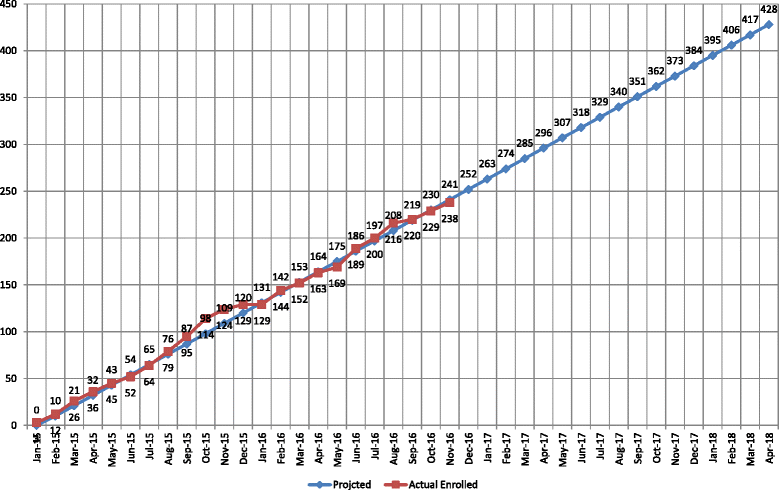Practical issues regarding implementing a randomized clinical trial in a homeless population: strategies and lessons learned
- PMID: 28679430
- PMCID: PMC5498931
- DOI: 10.1186/s13063-017-2046-9
Practical issues regarding implementing a randomized clinical trial in a homeless population: strategies and lessons learned
Abstract
There is a critical need for objective data to guide effective health promotion and care for homeless populations. However, many investigators exclude homeless populations from clinical trials due to practical concerns about conducting research with this population. This report is based on our experience and lessons learned while conducting two large NIH-funded randomized controlled trials targeting smoking cessation among persons who are homeless. The current report also addresses challenges when conducting clinical trials among homeless populations and offers potential solutions. Homeless individuals face several challenges including the need to negotiate daily access to food, clothing, and shelter. Some of the critical issues investigators encounter include recruitment and retention obstacles; cognitive impairment, mental health and substance abuse disorders; transportation and scheduling challenges; issues pertaining to adequate study compensation; the need for safety protocols for study staff; and issues related to protecting the wellbeing of these potentially vulnerable adults. Anticipating realistic conditions in which to conduct studies with participants who are homeless will help investigators to design efficient protocols and may improve the feasibility of conducting clinical trials involving homeless populations and the quality of the data collected by the researchers.
Trial registration: ClinicalTrials.gov, ID: NCT00786149 . Registered on 5 November 2008; ClinicalTrials.gov, ID: NCT01932996 . Registered on 20 November 2014.
Keywords: Attrition; Clinical trials; Community-based; Homeless adults; Retention; Smoking cessation.
Figures
References
-
- National Coalition for Homeless. 2013. http://nationalhomeless.org/about-homelessness/2016-03-24. Accessed 28 Mar 2016.
Publication types
MeSH terms
Associated data
Grants and funding
LinkOut - more resources
Full Text Sources
Other Literature Sources
Medical


